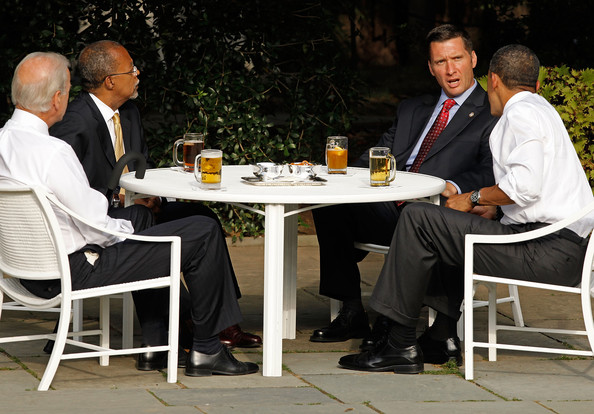If you read some people, you might get the impression that the gospel and social justice are synonymous. But words change meanings, even if some people have trouble understanding that a reference to “race” in the 1930s is not the same as one in the 1880s or the 1980s.
Consider how only a decade ago, the Gospel Allies were talking about social justice in ways that no one could use after Michael Brown, Ferguson, and Black Lives Matter. For instance, Kevin DeYoung wrote a series on social justice in Scripture that found almost no reference to race. Here is how he summarized it last year (even!):
Several years ago, I worked my way through the major justice passages in the Bible: Leviticus 19, Leviticus 25, Isaiah 1, Isaiah 58, Jeremiah 22, Amos 5, Micah 6:8, Matthew 25:31-46, and Luke 4. My less-than-exciting conclusion was that we should not oversell or undersell what the Bible says about justice. On the one hand, there is a lot in the Bible about God’s care for the poor, the oppressed, and the vulnerable. There are also plenty of warnings against treating the helpless with cruelty and disrespect. On the other hand, justice, as a biblical category, is not synonymous with anything and everything we feel would be good for the world. Doing justice means following the rule of law, showing impartiality, paying what you promised, not stealing, not swindling, not taking bribes, and not taking advantage of the weak because they are too uninformed or unconnected to stop you.
So for simplicity sake, let’s take biblical “social justice” to mean something like “treating people equitably, working for systems and structures that are fair, and looking out for the weak and the vulnerable.” If that’s what we mean, is social justice a gospel issue?
Even Thabiti Anyabwile seemed to be persuaded:
We seem to put social justice at odds with gospel proclamation. Many today don’t think these can easily coexist. They think that to fight for justice as the Christian church inevitably means the abandonment of the gospel. They may be correct. For since the Civil Rights Movement, the gospel has been thoroughly confused by too many in the African American church with liberation and justice itself.
To be sure, Anyabwile went on to question those who make too strong a contrast between the gospel and social justice:
to preach the gospel and have no concern and take no action in the cause of justice is as much an abandonment of the gospel as mistaken the gospel. How can a faithful gospel preacher preach the gospel before slaves and never wince at the gross barbarity of that peculiar institution? How can a man claim to live the gospel with fellow brothers in Christ and yet uphold laws that disenfranchise, marginalize, and oppress those same brothers?
Well, what exactly counts as taking action? Is it tweeting? Writing a post for a parachurch website? Calling a legislature? Standing outside an office with a placard?
What also is “upholding” laws that disenfranchise? If someone says nothing are they guilty of upholding existing laws? Or is it a case of speaking out or “taking action” against some laws but not others?
Abandonment of the gospel is a tad strong for a condition — “taking no action” — that is so arbitrary and inexact.
At the same time, once upon a time Anyabwile fully endorsed DeYoung’s point that Christians should stop using the phrase social justice:
Stop Using the Term “Social Justice”!
Not even John MacArthur and fellow signers went that far.
Something changed between 2009 and 2019. It could be that history clarified all the ambiguity (even if it did not change what the Bible — a fixed set of texts — says. Or it could be people have changed their minds. If Ferguson is the turning point, it sure would help to hear some reflection on ways in which a country that has persistently practiced racism only in 2014 became so egregious that now some people had to build up word counts and twitter followers.

